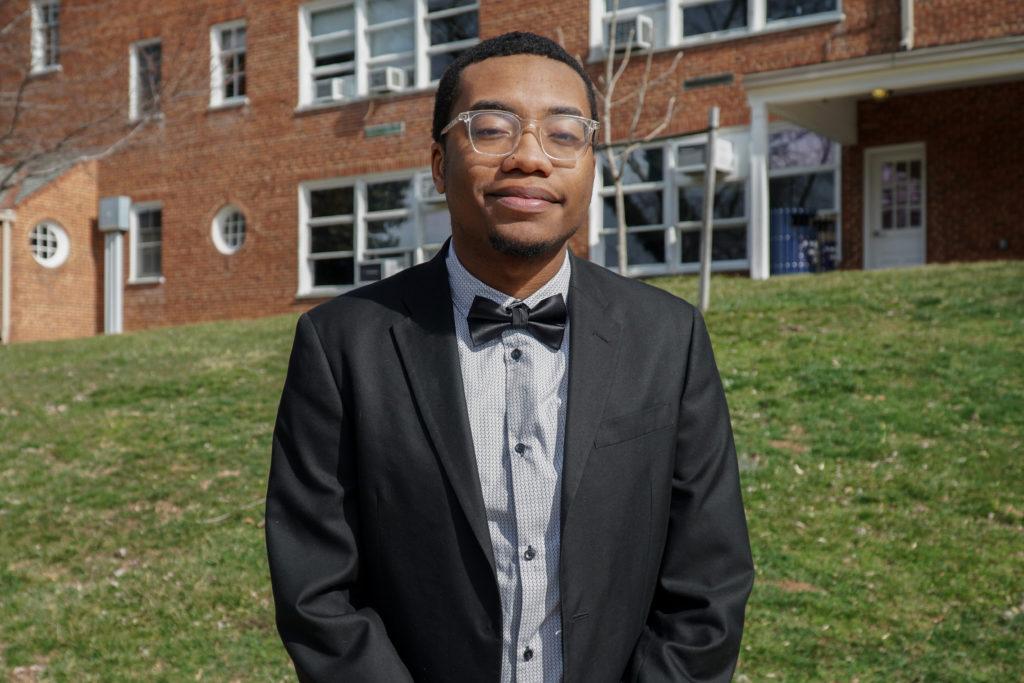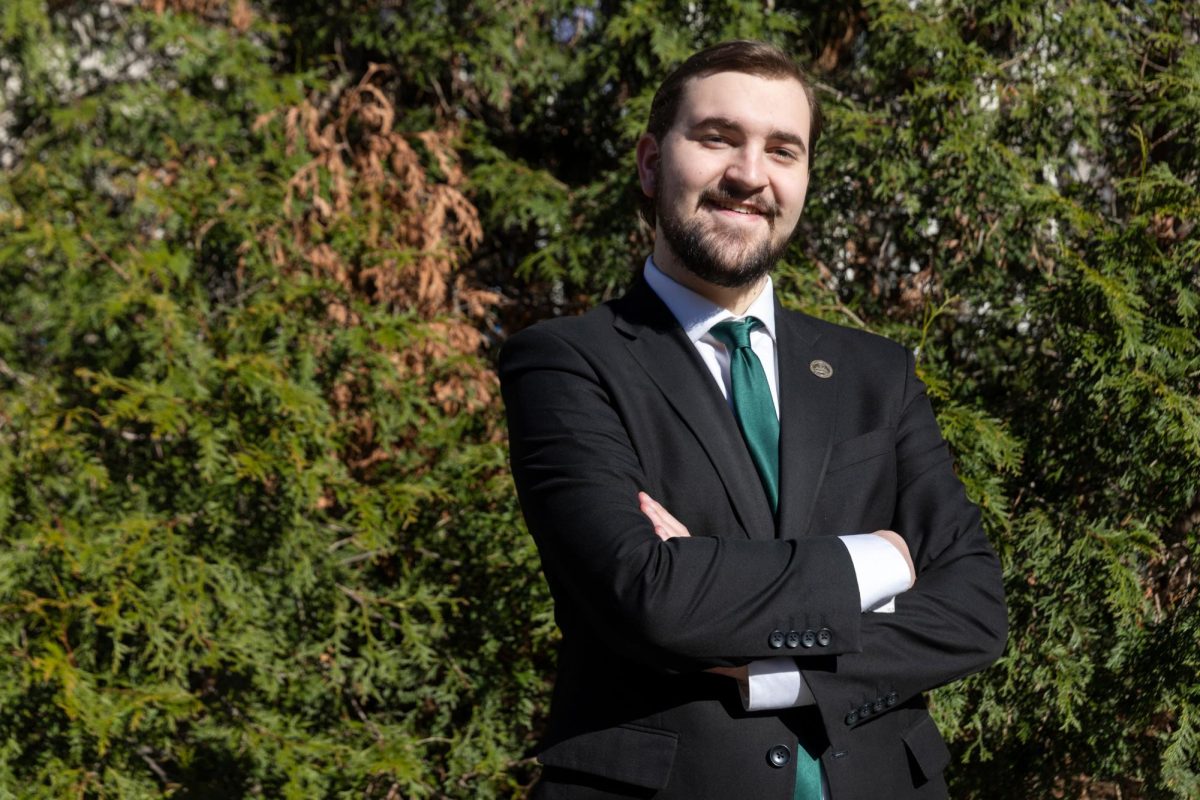A Student Association senator and sophomore looking to increase recognition for the Mount Vernon Campus is vying to be the SA’s next executive vice president.
SA Sen. Brandon Hill, CCAS-U, is running on a platform of more than 20 initiatives focused on expanding office space for student organizations and implementing an accessibility director to ensure campus meets national standards. Hill said he will work to urge officials to divest from fossil fuels, advocate for students who use the first-year forgiveness program to receive scholarships and increase resources for Vern residents.
“I am at a point where I can say I hate GW – I hate where the University spends its money,” Hill said. “I hate how the University represents minority students and hate how inaccessible the University is and basically the incompetence and disarray that many University offices are in. I am running as a student who is driven by anger, who is driven by sadness to make the University a better place, not for myself but for my peers.”
Hill must compile at least 500 signatures by 5 p.m. between Feb. 15 and Feb. 22 to qualify as a candidate and must be approved by the Joint Election Committee. He is the second candidate to announce his campaign for the post following SA Sen. Quentin McHoes, ESIA-U.
Hill said the fourth floor of the Marvin Center, which is dedicated to student organization offices, should allocate more space for smaller organizations, like the National Association of Black Journalists and the Black Graduate Student Association. He said he has spoken with Cissy Petty, the dean of the student experience and vice president of student affairs, about adding cubicle spaces in larger, unoccupied conference rooms to accommodate additional organizations.
“It’s really important to encourage that sense of inclusion for anybody who’s looking to join an organization,” Hill said.
Hill said he would push for officials to hire a compliance officer to inspect whether University facilities adhere to Americans with Disabilities Act guidelines, like accessible walking spaces and handicap doors. He plans to meet with Executive Vice President and Chief Financial Officer Mark Diaz to discuss how to fund hiring an ADA compliance officer and other projects to increase campus accessibility, Hill said.
He said he hopes to institute a SA director of accessibility while the University searches for an administrative compliance officer. The SA position would oversee general campus accessibility, ensure that all SA events are held in accessible spaces and counsel student organizations on how to accommodate students with varying disabilities, Hill said.
“The University tries to make itself ADA compliant, but the thing is that there is no one to check up and follow up on this,” Hill said.
Hill added that he would advocate for a system under which students can upload course syllabi to a SA-run bank and work with Disability Student Services to ensure all course materials adhere to ADA accessibility standards and are uploaded within two weeks of the beginning of the course.
Officials updated physical and virtual campus maps earlier this month to highlight accessibility features like ramps and automatic doors. Students with physical disabilities raised concerns about the accessibility of some Foggy Bottom Campus buildings, like the Marvin Center and Gelman Library, and the Vern’s hilly terrain.
Hill said he would work to expand the first-year forgiveness policy, which gives students a second chance to retake courses they failed as freshmen, to set up scholarships for students who must retake a course.
He said he plans to speak with financial aid administrators in the coming weeks to discuss possible changes within the office, like updates to financial aid announcements. At the moment, financial aid packages are released as late as July – after students have to register for a payment plan, Hill said.
“A lot of my friends cannot even afford to be here because the financial aid office has been no help to them,” he said.
Hill said he would work with Petty to expand the hours of GW Listens – a student-run mental health hotline – to operate when the Colonial Health Center is closed. He said the SA office is too small to accommodate GW Listens, and he wants to move the operation to another location, ideally the CHC.
Hill said he hopes to work with administrators to expand GW Listens’ operating hours, which currently run from 9 p.m. to 1 a.m., Wednesday to Sunday, to ensure students have access to mental health resources outside of the CHC’s business hours. He added that he will push for CHC reforms to allow students to request the same mental health counselor on their next visit.
“If you go to someone you don’t feel comfortable with, you can still get them again,” he said. “If you go back, it really discourages people from getting the help they feel that they need.”
He added that he would expand social-justice-oriented living and learning communities to the Vern and reintroduce a program that allows residents priority registration for classes hosted on the Vern to promote living on the remote campus.
The Vern includes five living and learning communities, like global connections and women’s leadership housing.
Hill said he will speak with Petty and the registration office in the coming weeks about why officials rescinded priority registration for Vern residents a few years ago and discuss the logistics of reinstating the program.
“I pride myself on not only working on the administrative side of things but also being on the front lines of every issue that I am passionate about and stand side by side with students on issues they are passionate about,” Hill said.








